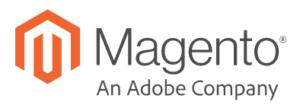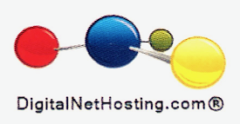
Magento Technology Stack: A Comprehensive Overview
Magento stands as a premier e-commerce platform, renowned for its robustness, flexibility, and scalability. It’s engineered to cater to businesses of all sizes, from small startups to large enterprises. At the core of Magento’s prowess are its modular architecture, customizable themes, and extensive language support. Let’s dive deeper into the technology stack that powers Magento, providing it with the versatility and power it’s known for in the digital commerce sector.
Core Components of Magento
Modules: The building blocks of the Magento platform, modules, serve a dual purpose. They not only execute specific business functions, enhancing the platform’s utility and efficiency but also introduce new functionalities. Modules can be developed to extend Magento’s capabilities, integrating seamlessly with the platform’s core features or even with third-party services and APIs. This flexibility allows for a tailored e-commerce experience, suited to the unique needs of each business.
Themes: Aesthetic appeal and brand identity are critical in the e-commerce space. Magento’s theme system allows for extensive visual customization, enabling businesses to modify the look and feel of their online store and administrative dashboard to reflect their brand. The power of Magento themes lies in their ability to transform the storefront, offering a personalized shopping experience that can captivate and engage customers.
Language Packages: Global reach is a necessity in today’s e-commerce landscape. Magento’s support for language packages facilitates the creation of multilingual websites, ensuring businesses can cater to a global customer base. These packages provide translations for the platform’s interface, making both the storefront and the admin dashboard accessible and navigable for users worldwide. This inclusivity is key to expanding a business’s market and enhancing customer satisfaction.
Underlying Technologies
Magento’s architecture is built on a combination of leading-edge technologies that ensure its performance, security, and scalability:
- PHP: As a server-side scripting language, PHP is at the heart of Magento’s operations, providing the logic required for dynamic content management, database operations, and more.
- MySQL/MariaDB: For database management, Magento utilizes MySQL or MariaDB, offering robust data storage and retrieval capabilities that are essential for managing product catalogs, customer data, and transaction records.
- Elasticsearch: Magento 2 integrates Elasticsearch, enhancing the search functionality within e-commerce sites. This powerful search engine supports quick and accurate product searches, improving user experience.
- Redis/Memcached: For session storage and caching, Magento can be configured to use Redis or Memcached. These technologies help in speeding up the website’s load times, making the shopping experience smoother for users.
- Varnish: A web accelerator and reverse proxy caching mechanism, Varnish is often used with Magento to reduce server load and speed up content delivery.
- Composer: As a dependency management tool for PHP, Composer facilitates the management of Magento modules, ensuring that all software components are up-to-date and compatible.
Development Tools and Best Practices
Magento also encourages the use of various development tools and practices, including:
- Magento CLI: The command-line interface allows developers to perform a variety of tasks, from installation and configuration to module management, enhancing productivity and control.
- Version Control: Integration with version control systems (VCS), like Git, is a best practice within the Magento community, enabling better team collaboration and code management.
- Testing Frameworks: Magento supports various testing frameworks, such as PHPUnit for unit testing and MFTF (Magento Functional Testing Framework) for functional testing, ensuring the reliability and stability of the e-commerce platform.
Conclusion
Magento’s technology stack is meticulously chosen to empower businesses to create powerful, scalable, and secure e-commerce solutions. By leveraging modular architecture, customizable themes, and extensive language support, along with a suite of underlying technologies and development tools, Magento offers an unparalleled platform for digital commerce success. Whether you’re looking to enhance your store’s functionality, improve user experience, or expand globally, Magento provides the flexibility and power to achieve your business objectives.

